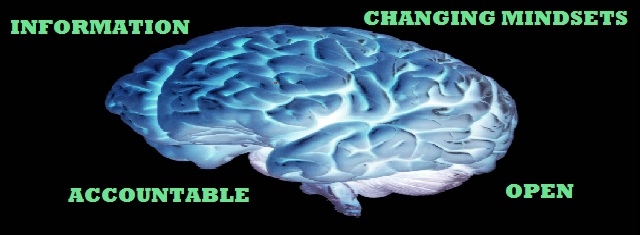Lifestyle
CHANGING MINDSETS AND HOW CAN PEOPLE JUDGE WHAT INFORMATION IS RELIABLE
THE FAILURE TO BE OPEN AND ACCOUNTABLE

(Source: © Ruby BIRD & Yasmina BEDDOU)
The task of creating an industrial framework and a viable economic model for the future remains elusive, but the enthusiasm for quality reveals a continuing commitment to professional values. Media accountability is part of this ethical framework. Accountability is one of the keys ethics shaping the professional world, but it has often been a neglected principle. The philosophy of truth-telling, independence and responsibility is deeply embedded in traditions. But owning up to mistakes is not something professionals ever find easy.
While journalists are able to dish out lacerating criticism of others, the failure of media to be open and accountable about their own misdemeanours is a singular weakness, even a symptom of arrogance and complacency. It may be one of the reason why public trust in media and journalism has been lost in many countries. The lack of humility has been exposed not least by people who now use the Internet to expose the errors and hypocrisy of media.
The traditional media accountability system has been based upon administration of an agreed code of practice and investigation of complaints from members of the public about media content. Today, much journalism is produced in a multi-media environment. Very often a journalist will produce material for use in different forms. Although content now springs from the same source, forms of content control remain very different.
Self regulation begins inside the newsroom. Journalists and broadcasters must be able to freely discuss all issues and concerns that they face and particularly over questions related to how working practice may compromise ethical standards and quality. Also, codes vary from country to country reflecting different sensitivities and traditions, there are certain elements which are universal and recognized by all journalists.
Critical to all the forms of accountability is the commitment to the values of the profession and to ensure that codes become more than just well-meaning aspirations, but are applied routinely and effectively in the daily round of journalistic work.
Critical to all the forms of accountability is the commitment to the values of the profession and to ensure that codes become more than just well-meaning aspirations, but are applied routinely and effectively in the daily round of journalistic work.
Ruby Bird Changing Mindsets People Judge Information Failure Accountable Open Reliable Task Industrial Economic Model Future Quality Professional Media Framework Ethical Mistakes Criticism Symptom
Liability for this article lies with the author, who also holds the copyright. Editorial content from USPA may be quoted on other websites as long as the quote comprises no more than 5% of the entire text, is marked as such and the source is named (via hyperlink).






